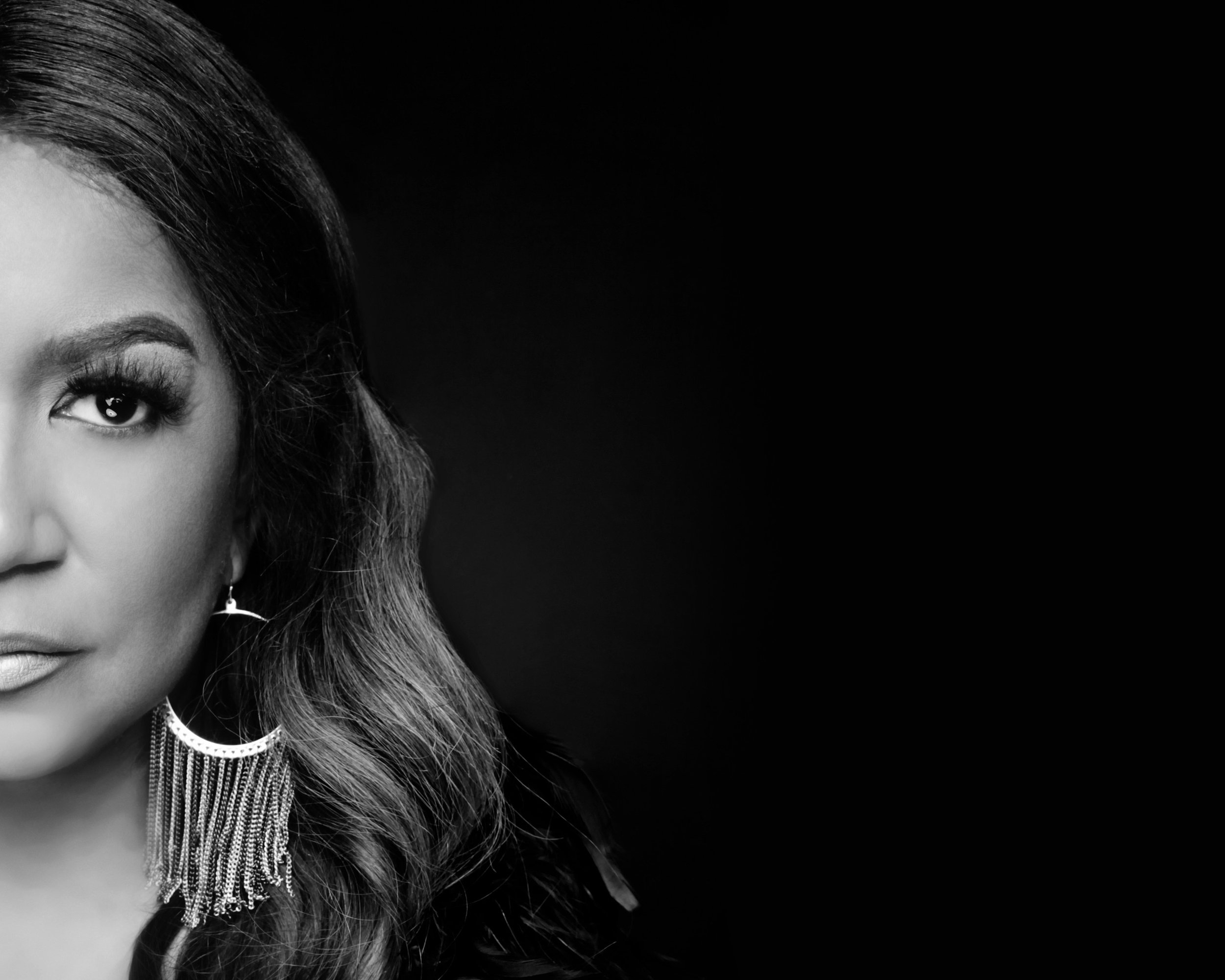
BIOGRAPHY
When it came time to selecting the debut single of her first solo project since capturing millions of hearts as runner-up on The Voice, Wendy Moten knew just the song. Not only is “Don’t Give Up” the perfect showcase for her powerful vocals and genre-blending style, but it has also been her life philosophy for three decades.
“It has become my message that I keep living every day,” she says of the song she co-wrote with her partner, musician David Santos. “I don’t know how much louder it could have been than falling on The Voice and getting back up. I knew I had to get up if I could and I did.”
In hindsight, Moten’s shocking fall served as a metaphor for her life: don’t give up, no matter what. “When I fell and broke my elbow on the show and got back up, that encouraged people because I was the one who looked like I had it all together,” she says. “I fell but I jumped back in. That is a real example and something they saw in real time.”
“Don’t Give Up” is a reintroduction of Moten as a solo artist, one who has fought tirelessly to create the music in her soul, a sound that isn’t defined by genre, age or region. As an artist who has learned different languages, cultures, histories and music while traveling the world, she is a bridge builder who unites people of all backgrounds and races.
Inspired by genre-defying artists such as Lionel Richie, Adele, Chris Stapleton, Kelly Clarkson and Linda Ronstadt, she has the hard-earned confidence to follow her musical instincts, no matter where they lead. “It was always a problem when record labels wanted you to pick a genre because I love singing different genres,” she says. “I didn’t want to be labeled as one thing or the other. What I have learned is that is who I am. I grew up watching Hee Haw and Soul Train and I love them both. I am not one or the other.”
Persistence has been her superpower as she has successfully weathered the fickle music business for the last 30 years. For too much of that time, she was encouraged to be something other than what she was.
The Memphis native signed a solo deal with EMI and released a 1992 self-titled album that contained the ballad “Come In Out of the Rain,” which was a Top 5 hit on the Billboard Adult Contemporary Chart and a Top 10 hit on the U.K. singles chart. She opened for Michael Bolton on his North American stadium tours and was featured in the David Foster-hosted sold-out concerts at Japan’s famed Budokan.
“I was on EMI Records during the Whitney Houston/Celine Dion era,” she says. “Everybody had high hopes and said I was the next Whitney Houston. To me, that was a set up for failure because there is only one Whitney Houston. But I learned a lot. To find ways to stay in the music business at the highest level I could create is a miracle. You can’t give up until it’s over. Until then, just keep working hard.”
She spent two decades as one of the most in-demand background vocalists. She spent about 15 years touring the world with Julio Iglesias, singing in four languages and joining him onstage before world leaders. She was on Tim McGraw and Faith Hill’s Soul2Soul tour, spent several years with Martina McBride and joined Vince Gill in 2016.
Gill produced her 2020 solo country album, I’ve Got You Covered, which featured her interpretation of classic songs of artists such as Dolly Parton, Bobbie Gentry and Linda Ronstadt. It was this project that gave her the courage and mindset to enter The Voice.
“After COVID shut everything down, I felt the playing field was even, and if you wanted to jump out there, you could,” she says. “After being a background artist for 25 years, I didn’t know what I wanted to do or how to do it. Then I realized the kind of artist I wanted to be, and my purpose and The Voice appeared.”
Auditioning for Season 21 at age 56 was a challenge because she had plenty to risk. Unlike the younger contestants, her industry reputation was at stake. “It took self-therapy, me talking to myself,” she says. “I was terrified because I wasn’t sure. It is reality TV. Is it going to tear down what I built in 25 years?”
In hindsight, of course, it appears that the decision was a stroke of genius. “When I think of one Blind Audition that I was just shocked and amazed, and I still can’t, haven’t gotten over it, it would have to be Wendy Moten, says The Voice’s Blake Shelton. and “It’s still one of the best singers—maybe the best singer that I’ve ever just sat and listened to in a room. It’s just unbelievable.”
The Voice positioned Moten as a lead singer and gained her millions of new fans. It also allowed her to showcase the numerous genres that she can effortlessly explore, from R&B and pop to country and jazz.
One of six siblings raised by her minister father and encouraging mother, she performed her first solo in her father’s Memphis church at age eight. She was immersed in the city’s musical landscape, from Elvis and Isaac Hayes to Sam & Dave and numerous blues artists.
She met Santos, a bass player, nearly 30 years ago, when they were both a member of an all-star band that included musical icons Billy Preston and Randy Bachman. When Santos decided to relocate from New York to Nashville, she joined him in 1996. “In Memphis, we all grew together, so you knew who the movers and shakers were. I had to start completely over in Nashville.”
News of her talent spread quickly in Music City and her powerful vocals soon became the stuff of legend. Indeed, she even earned the nickname “The Voice.” Now that her impeccable reputation has spread nationally, she’s working with producers including Paul Worley (Martina McBride, Lady A) and eager to showcase all that she can do.
“This time of my life, I am very sure of the moves I am making and want to make,” she says. “I have no doubt in my mind of my purpose from this moment on. I’ve been fortunate in that I have always had a gift and amazing opportunities. I don’t remember not working or traveling; all I remember are rehearsals.
“What is different about me now is there is no guesswork, which is a great relief, especially the older you get in the music business and you are trying to find your place. My place is where I make it. I believe that if you build it, they will come.”

